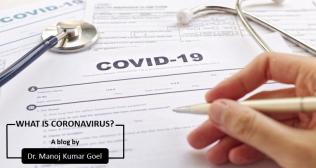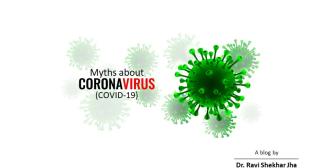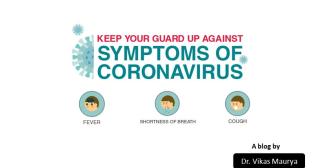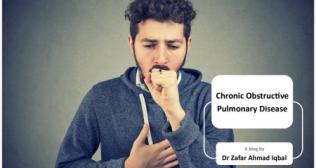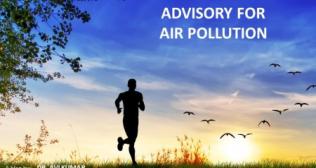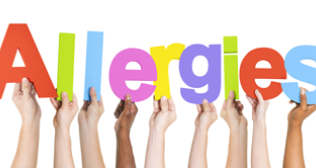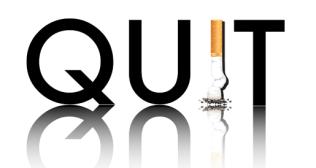
Stay Healthy This Diwali: A Complete Guide to Festival-Related Health Concerns
Diwali, the festival of lights, is a time of immense joy, vibrant celebration, and cherished traditions. It is a period when homes are adorned with lamps, the air is filled with the aroma of festive delicacies, and the night sky sparkles with fireworks. This beautiful spectacle brings families and communities together in a spirit of happiness. Yet, amidst this wonderful atmosphere, the very elements that define the celebration can sometimes pose significant health challenges.
Understanding the potential health issues during Diwali is not about diminishing the festive spirit, but about embracing it with mindfulness and care, ensuring the festival of lights remains a beacon of health and happiness for everyone.
The Challenge to Our Lungs and Airways
Perhaps the most immediate and widespread health concern during Diwali revolves around air quality. The smoke from millions of firecrackers releases a dense haze of pollutants, including sulfur dioxide, nitrogen oxides, and fine particulate matter (PM2.5), into the atmosphere. This smog hangs heavy in the air, creating a serious health hazard, particularly for our respiratory systems.
Aggravation of Chronic Respiratory Conditions
For individuals living with pre-existing conditions, this period can be especially difficult. The surge in air pollution is a primary trigger for those with chronic lung issues. People with asthma, chronic obstructive pulmonary disease (COPD), or bronchitis often experience a severe worsening of their symptoms. The pollutants can irritate the airways, leading to inflammation, increased mucus production, and bronchospasm, where the airways suddenly narrow.
The most common signs of asthma attacks, such as wheezing, shortness of breath, chest tightness, and persistent coughing, become far more frequent and severe. Effective asthma treatment during this time involves strict adherence to prescribed inhalers and medications, and often requires a proactive consultation with a doctor to adjust the treatment plan.
Understanding Breathing Issue Causes
For everyone, including those with healthy lungs, the high concentration of pollutants is one of the most significant breathing issue causes during the festival. The tiny PM2.5 particles are particularly dangerous because they are small enough to bypass the body’s natural defenses and lodge deep within the lungs. This can cause acute respiratory issues like bronchitis, throat irritation, a persistent dry cough, and a feeling of breathlessness.
Children and the elderly are especially vulnerable because their respiratory systems are either still developing or have a reduced capacity to handle such a heavy pollutant load.
The Impact on Cardiovascular Health
The health risks from Diwali pollution are not confined to the lungs. Emerging evidence clearly shows a strong link between air pollution and cardiovascular events. When we inhale PM2.5 particles, they can enter the bloodstream, causing inflammation throughout the body. This systemic inflammation can destabilize existing plaque in the arteries, potentially triggering serious heart problems.
The immense noise pollution from firecrackers also plays a role. Sudden, loud blasts can cause a spike in blood pressure and heart rate. For individuals with pre-existing heart issues like hypertension, coronary artery disease, or a history of heart attack, this added stress on the cardiovascular system can be dangerous. It is a critical time for heart patients to be vigilant, take their medications as prescribed, and avoid direct exposure to loud noises and heavily polluted areas.
Protecting Our Eyes and Skin
The very elements that create the spectacle of Diwali can also cause direct physical harm if not handled with extreme care. The chemicals, smoke, and heat from fireworks and lamps pose a direct threat to our eyes and skin.
The Risk of Eye Irritation and Injury
The smoke and chemical particles in the air are a major source of eye irritation. Symptoms like redness, watering, itchiness, and a gritty sensation are common. For those who wear contact lenses, this irritation can be magnified. A proper eye irritation treatment at home starts with thoroughly rinsing the eyes with clean, cool water.
It is vital not to rub the eyes, as this can worsen the irritation or scratch the cornea. Beyond irritation, the risk of direct eye injury from firecracker sparks or debris is a serious medical emergency that requires immediate attention from an ophthalmologist.
The Danger of Burns
Handling fireworks, diyas, and candles inevitably carries a risk of burns. Even a small spark can cause a painful injury. A proper skin burn treatment for a minor, first-degree burn involves immediately cooling the area under running cool (not cold) water for at least 10 to 15 minutes. This helps to reduce the temperature of the skin and minimize damage.
After cooling, covering the burn with a sterile, non-stick dressing is recommended. For any burn that is larger, blistering, or appears deep, seeking immediate medical care is essential.
A Time for Mindful Celebration
Diwali is a beautiful and meaningful festival, a time for joy, reflection, and connection. By being aware of the potential health hazards and taking simple, proactive steps, we can protect ourselves and our loved ones.
This knowledge empowers us to celebrate responsibly, ensuring the light of Diwali illuminates our lives without casting a shadow on our health. A mindful approach allows the true spirit of the festival to shine brightly.
Frequently Asked Questions
Q1. What are the most common signs of asthma to watch for during Diwali?
Ans. The key signs of asthma that can be triggered by Diwali pollution are a sudden increase in wheezing, persistent coughing (especially at night), shortness of breath even with minimal exertion, and a feeling of tightness or pressure in the chest. If you or a family member experience these, it is important to use your prescribed rescue inhaler and seek a calm, indoor environment.
Q2. What is the best first-aid for eye irritation from smoke?
Ans. The most effective initial eye irritation treatment is to gently flush the eyes with clean, cool water for several minutes. Avoid rubbing your eyes, as this can cause more damage. If the redness, pain, or gritty sensation persists, or if you experience any changes in vision, it is best to consult a doctor.
Q3. I have existing heart problems. What specific precautions should I take?
Ans. If you have known heart issues, it is crucial to stay indoors as much as possible to avoid both air and noise pollution. Ensure you take all your prescribed medications on time, monitor your blood pressure, and avoid strenuous activity. If you experience any symptoms like chest pain, unusual shortness of breath, or dizziness, seek immediate medical help.
Q4. How can I create a safer environment at home for someone with respiratory issues?
Ans. To protect someone with respiratory issues, keep all windows and doors closed to prevent outdoor smoke from entering. Using an air purifier with a HEPA filter can significantly improve indoor air quality. Ensure the person avoids smoke-filled areas, has their rescue medications easily accessible, and stays well-hydrated.
Popular Searches:
Hospitals: Cancer Hospital in Delhi | Best Heart Hospital in Delhi | Hospital in Amritsar | Hospital in Ludhiana | Hospitals in Mohali | Hospital in Faridabad | Hospitals in Gurgaon | Best Hospital in Jaipur | Hospitals in Greater Noida | Hospitals in Noida | Best Kidney Hospital in Kolkata | Best Hospital in Kolkata | Hospitals in Rajajinagar Bangalore | Hospitals in Richmond Road Bangalore | Hospitals in Nagarbhavi Bangalore | Hospital in Kalyan West | Hospitals in Mulund | Best Hospital in India | Gastroenterologist in Jaipur | Cardiology Hospital in India
Doctors: Dr. Rana Patir | Dr. Rajesh Benny | Dr. Rahul Bhargava | Dr. Jayant Arora | Dr. Anoop Misra | Dr. Manu Tiwari | Dr. Praveer Agarwal | Dr. Arup Ratan Dutta | Dr. Meenakshi Ahuja | Dr. Anoop Jhurani | Dr. Shivaji Basu | Dr. Subhash Jangid | Dr. Atul Mathur | Dr. Gurinder Bedi | Dr. Monika Wadhawan | Dr. Debasis Datta | Dr. Shrinivas Narayan | Dr. Praveen Gupta | Dr. Nitin Jha | Dr. Raghu Nagaraj | Dr. Ashok Seth | Dr. Sandeep Vaishya | Dr. Atul Mishra | Dr. Z S Meharwal | Dr. Ajay Bhalla | Dr. Atul Kumar Mittal | Dr. Arvind Kumar Khurana | Dr. Narayan Hulse | Dr. Samir Parikh | Dr. Amit Javed | Dr. Narayan Banerjee | Dr. Bimlesh Dhar Pandey | Dr. Arghya Chattopadhyay | Dr. G.R. Vijay Kumar | Dr Ashok Gupta | Dr. Gourdas Choudhuri | Dr. Sushrut Singh | Dr. N.C. Krishnamani | Dr. Atampreet Singh | Dr. Vivek Jawali | Dr. Sanjeev Gulati | Dr. Amite Pankaj Aggarwal | Dr. Ajay Kaul | Dr. Sunita Varma | Dr. Manoj Kumar Goel | Dr. R Muralidharan | Dr. Sushmita Roychowdhury | Dr. T.S. MAHANT | Dr. UDIPTA RAY | Dr. Aparna Jaswal | Dr. Ravul Jindal | Dr. Savyasachi Saxena | Dr. Ajay Kumar Kriplani | Dr. Nitesh Rohatgi | Dr. Anupam Jindal |Dr. Subhaprakash Sanyal |Dr. PRIYANKA VASUDEO MOULE |Dr. Sohini Chakraborty |Dr. Akash Khandelwal |Dr. Nikhil M Kumar |Dr. Anita Mathew |Dr. Hasmukh Ravat
Specialties: Heart Lung Transplant | Haematology and BMT | Orthopedic | Cardiology Interventional | Obstetrics & Gynaecology | Onco Radiation | Neurosurgery | Interventional Cardiology | Gastroenterologist in Jaipur | Neuro Physician | Gynecologist in Kolkata | Best Neurologist in India | Liver Transfer







